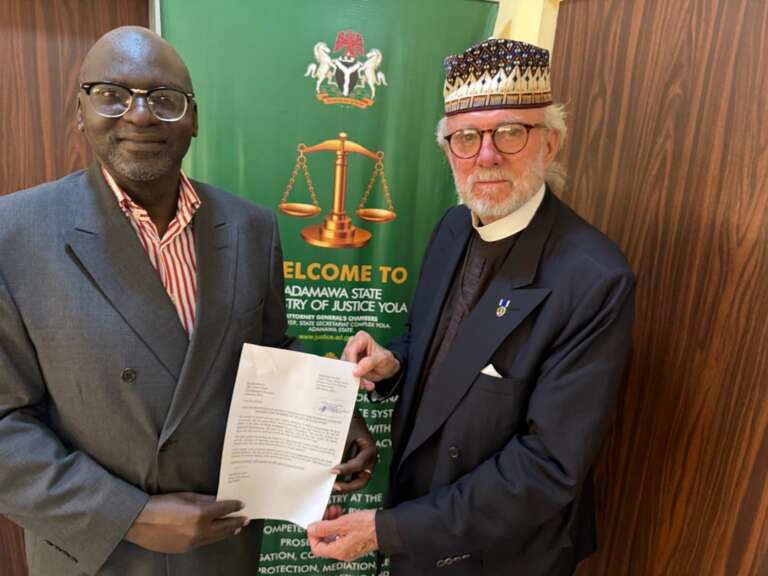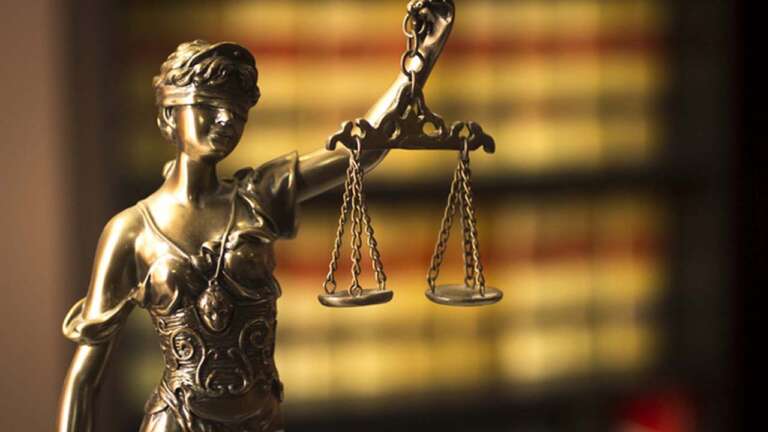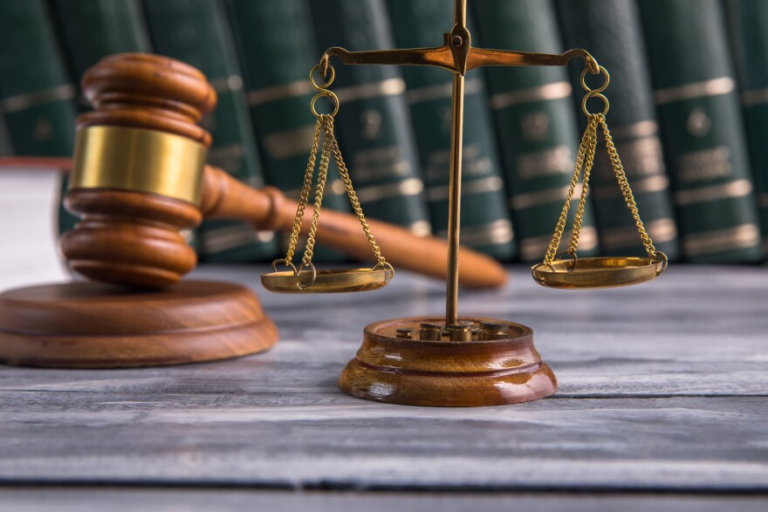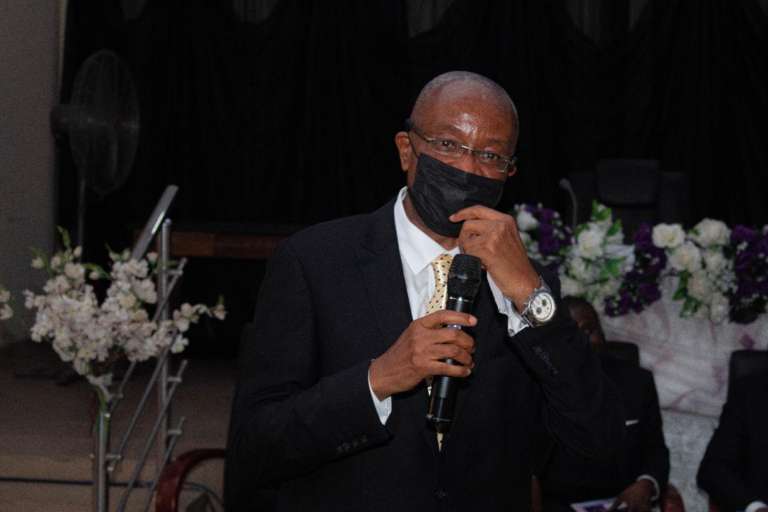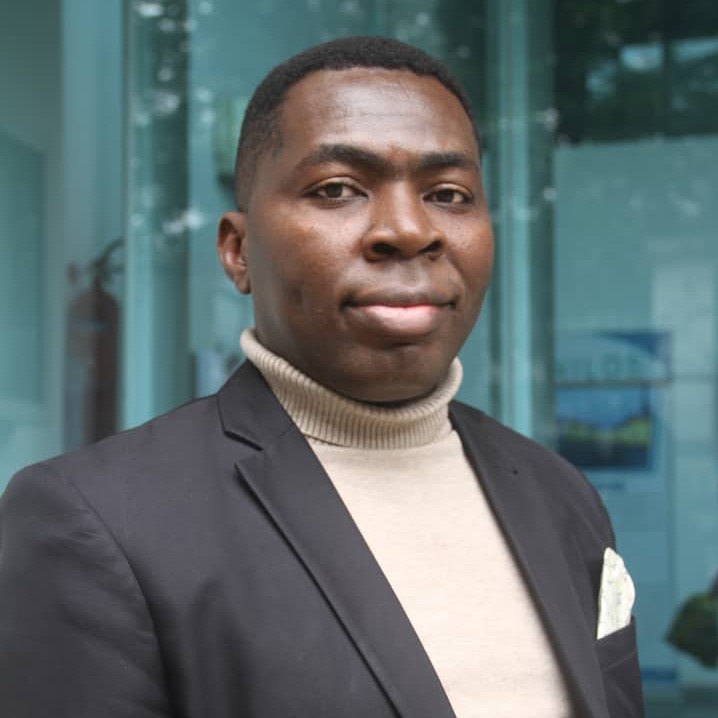By Onikepo Braithwaite
Introduction
Recently the story of the judgement of the Supreme Court in Appeal No. SC/CR/1026/2022 delivered on March 7, 2025 Sunday Jackson v The State per Mohammed Baba Idris, JSC made the rounds. As usual, it elicited comments vilifying the whole Nigerian judicial system and the Chief Justice of Nigeria, Hon. Justice Kudirat Kekere-Ekun, GCON, who didn’t even sit on the Appeal Panel in that case, alleging injustice and accusing her of sentencing the Appellant, Mr Jackson to death out of evil!
Five other Supreme Court Justices, decided this appeal. While the majority (four Justices) affirmed the decisions of lower courts convicting Jackson for culpable homicide punishable by death contrary to Section 221(a) of the Penal Code Law of Adamawa State 1997 (PCLA), the Head of the Panel, Helen Moronkeji Ogunwumiju, JSC dissented. In her minority dissenting judgement, Ogunwumiju, JSC set aside the judgements of the trial court and Court of Appeal, allowed the appeal, acquitted and discharged Jackson, and recommended him to the Governor of Adamawa State as a proper candidate for him to exercise his prerogative of mercy in favour of.
None of the reasons for the majority and minority decisions, had to do with wickedness, evil, ethnicity or religious sentiments; but, rather, the interpretation of the law, exercising their judicial discretion judiciously and judicially. The Supreme Court Appeal Panel consisted of three Christian Justices and two Muslims, while I don’t think any of the Justices is of the Fulani extraction as stated by some, alleging ‘they had it in’ for Jackson for killing a Fulani Herdsman.
Elements of a Good Judgement
It is sad that these days, once judgements are handed down, people do not take the time to read them and understand the reasoning behind them, before automatically, and regularly, erroneously, concluding that they are perverse.
Once a decision bears the elements of a good judgement, that is, one that is based on law and facts – issues distilled; evidence adduced properly evaluated; clear findings of fact made; the law properly applied to arrive at the correct conclusion; clear and coherent reasoning behind the judgement, this is all that is required. See Mbani v Bosi & Ors (2006) LPELR-1853(SC). Though the principle of ‘Stare Decisis’ must be adhered to, it comes with the caveat of avoiding bad precedent.
Deciding cases based on public policy, which is seen as being synonymous with public good, is only permissible when the decision aligns with the rules, law and procedure that govern the matter. See Sonnar (Nigeria) Ltd & Anor v Partenreedri M.S. Nordwind Owners of the Ship M.V. Nordwind & Anor (1987) LPELR- 3494(SC) per Kayode Eso, JSC. Doing substantial justice between the parties in a case and avoiding being bugged down with technicalities, is also important. See Akpan v Bob (2010) LPELR-376(SC) per Walter Samuel Nkanu Onnoghen, JSC (later CJN). It is only when these elements are absent from a judgement that we can begin to criticise it as wanting, and not just because it doesn’t favour us or it offends our sentiments.
Background
Sunday Jackson, a farmer, had been found guilty of culpable homicide punishable by death by a High Court of Adamawa State, for killing one Buba Bawuro, a Herdsman, who had trespassed on Jackson’s land with his cattle in January 2015.
The summarised facts of the case related in the extra-judicial statement made at the Police Station by Jackson who was the sole witness of the incident, was that Bawuro allegedly pursuing some people who killed his cattle, trespassed onto his farm, attacked Jackson out of frustration and tried to stab him; they struggled and Jackson wrestled the knife from him, and then stabbed Bawuro in the neck three times. Jackson then fled the scene, leaving Bawuro in a pool of blood. Jackson had stated that he knew that he could kill Bawuro by stabbing him, and he meant to kill him. Jackson reported himself to his Mother, who reported to her brother, and Jackson ended up being arrested. Of course, there is scepticism about confessional statements taken by the Police.
Jackson’s testimony in court, however, differed in some respects from his extra-judicial statement. Jackson testified that Bawuro, a Fulani Herdsman, had asked him if he had seen the people he was pursuing, to which he replied in the negative. Bawuro brought his cattle onto his land, and when he tried to drive away Bawuro’s cattle, Bawuro brought out a knife to attack him, and being unarmed he fled with Bawuro in hot pursuit. He testified that Bawuro was able to stab him in the back of the head and left leg. The trial Judge confirmed seeing the scars of the injuries (evidence of the scars sighted by the Judge, prosecution and defence Counsel was stated in the record of proceedings). Bawuro caught up with him, and then tried to stab Jackson again, they struggled and Jackson wrestled the knife from him. Bawuro picked up a stick and started beating Jackson, who then stabbed Bawuro in the neck three times, until he was weak and unable to continue beating him. Jackson also testified in court, that he believed that Bawuro would kill him.
Plea of Self Defence
Jackson pleaded that he killed Bawuro in self defence; the courts didn’t accept this plea. The majority believed that the varied version of events that Jackson testified to in court, was an afterthought (obviously to lay the foundation for the plea of self defence). To buttress this view, in his lead judgement Baba Idris, JSC, referred to Jackson’s oral testimony in court as an attempt to perform an “11th hour miracle”, and held that where an accused does not challenge the making of his confessional statement, but merely gives oral evidence that is inconsistent with or contradicts the contents of the statement, the oral evidence should be treated as unreliable and liable to be rejected, and the contents of the confessional statement upheld, unless a satisfactory explanation of the inconsistency is proffered.
In support this position, Aliyu v State (2021) LPELR-55002 (SC) was cited. The purport of this is that, Jackson didn’t give a cogent reason for the inconsistency between his extra-judicial statement and oral testimony in court, and that where Jackson didn’t challenge his extra-judicial statement, and gave oral testimony that is different from it, the latter would be treated as unreliable and was liable to be rejected. And, this was what the Apex Court did – rejected his oral testimony. Furthermore, the Supreme Court held that there was no medical report presented to the court, to confirm that Jackson’s scars that were seen by the trial court, were as a result of injuries sustained from Jackson’s encounter with Bawuro, since there was no other witness to the encounter.
A successful plea of self defence, is a complete defence for a case of murder, and will result in the discharge and acquittal of the Defendant. See Okorodudu v State (2024) LPELR-62191(SC) per Helen Moronkeji Ogunwumiju, JSC, where the Apex Court held that the defence of self defence is based on the facts of each case; that it is a total defence which the prosecution has the burden of disproving, failing which the burden of proof beyond reasonable doubt will not be discharged. In State v Shonto (2019) LPELR-47431 (SC) per Amina Adamu Augie, JSC, the Supreme Court held inter alia that killing in self defence is a total exoneration of the Accused Person, resulting in their discharge and acquittal.
For the plea of self defence to be successful, the Supreme Court cited the case of Ochani v State (2017) LPELR-42352 (SC) in which it had listed what must be proved 1) that the Deceased was the aggressor – the accused must be free from fault in bringing about the encounter; 2) there must be present an impending peril to life or of great bodily harm, either real or apparent as to create the honest belief of an existing necessity; 3) there must be no safe or reasonable mode of escape by retreat; and 4) there must have been a necessity for taking life. The Supreme Court also cited Afosi v State (2013) LPELR -20751 (SC), where it had held that all the above ingredients must be established conjunctively. In State v Shonto (Supra) the Supreme Court also held that the force used in self defence must be reasonable in the circumstances, to repel the attack.
The Majority Decision and Her Lordship, Ogunwumiju, JSC’s Dissenting Judgement
Both the majority and dissenting decisions agreed that the deceased, Bawuro, was the aggressor, and Jackson wasn’t the cause of the unfortunate encounter. It was on the other three elements that there was a disagreement.
In both his extra-judicial statement, which the Baba Idris, JSC held was a valid confessional statement made voluntarily (since the objection on its admission into evidence necessitating a trial-within-trial was withdrawn) and oral testimony, Jackson stated that he was able to wrestle the knife from Bawuro. As far as the majority was concerned, by seizing the knife, the impending danger to Jackson’s life had been averted, and he had a means of escape since they were in an open bush. Since Jackson’s oral testimony had been discountenanced in favour of the extra-judicial statement, so was his story therein, that Bawuro picked up a stick after the knife was seized and was beating him with it, that he feared for his life and had to defend himself by stabbing him. Instead, the majority accepted Jackson’s extra-judicial/confessional statement that he stabbed Bawuro thrice in the throat with the intention of killing him; that any reasonable person would know that stabbing in the throat would cause grievous bodily harm or death, and the medical report admitted into evidence supporting the fact that Bawuro was stabbed multiple times was countenanced.
Her Lordship, Ogunwumiju, JSC, on the other hand, was of the view that both courts should have countenanced Jackson’s testimony on oath which was not contradicted successfully under cross-examination (see Okorodudu v State (Supra)); that Bawuro had attacked Jackson first when he tried to run away from Bawuro; that Bawuro stabbed Jackson on the back of the head with the knife and when he kicked Bawuro to get away, he stabbed Jackson on the left leg. Her Lordship was of the opinion that, the trial Judge’s confirmation of them seeing the scars was sufficient, and that proportionality can be difficult to measure, particularly when there was no eyewitness to the incident. Her Lordship, Ogunwumiju, JSC, also believed that from the account of events, where such a fight with a knife was ongoing, there couldn’t have been enough time or the circumstances for Jackson to properly, intentionally and purposely form an intention to kill Bawuro.
Forming an intention to kill presupposes premeditation, and premeditation would be having a guilty mind even before the act, that is, forming a plan to kill someone beforehand, and this couldn’t have been done during a sudden fight between strangers, as in the case of Jackson and Bawuro. See Ibrahim v State (2018) LPELR-45967(CA). In using the plea of self defence, the Defendant doesn’t deny killing the deceased, but, maintains that the killing was done only to save their own life; so, even if Jackson admitted to wanting to kill Bawuro, it was probably on the spur of the moment to save his own life. Her Lordship was also of the view that, the doubts raised should have been resolved in favour of Jackson.
In trying to save Jackson, the defence of self defence having failed, though it wasn’t raised by him, Baba Idris, JSC also examined the defence of provocation, though it is trite that self defence and provocation cannot co-exist on the same evidence – they are mutually exclusive. Unlike self defence, provocation is a mitigating defence, not absolute, and would have the effect of reducing the offence to culpable homicide not punishable with death, that is, from murder to manslaughter. The Apex Court cited the case of Mohammed v State (2017) LPELR-42098 (SC) which held the three elements that must co-exist for the defence of provocation to succeed: 1) In the heat of passion; 2) grave and sudden provocation as to deprive the accused of self-control and 3) before there is time for passion to cool. The Supreme Court found that while the first element was proved, and in the second element, Jackson lost his self control while wrestling for the knife with Bawuro, the third element, the mode of resentment bore no reasonable relationship with the provocation. It appears that the majority were of the view that Jackson had time to cool having wrestled the knife from Bawuro; they may have been able to live with Jackson stabbing Bawuro once, but, thrice? They believed it was excessive.
Conclusion
I respectfully disagree with the majority judgement and I tend to align myself more with the dissenting judgement of Her Lordship, Ogunwumiju, JSC. I’m of view that, even if the plea of self defence didn’t avail him, Jackson’s actions still do not appear to me to fall within the definition of premeditation/malice aforethought/guilty mind, but more like Voluntary Manslaughter at worst – intentional killing without premeditation (which could bag up to life imprisonment upon conviction).
Being suddenly attacked with a dagger by a trespasser, isn’t a normal daily occurrence that everyone is prepared for. And, not everyone can remain cool, calm, collected and rational in such circumstances. Section 33(2)(b) of the 1999 Constitution also permits a person to use reasonable force to defend their life and property. Since there was no eye witness, who is to say that the force Jackson used on Bawuro was excessive, given the circumstances? In my humble opinion, Jackson should have been given the benefit of the doubt, and in the worst case scenario, convicted for the lesser of offence of culpable homicide not punishable with death, if not a discharge and acquittal on the basis of self defence. But, the majority were obviously of the opinion that the fact that Jackson was able to wrestle the knife from Bawuro gave him an upper hand, time to cool down and an escape route that no longer necessitated the stabbing of Bawuro to death. Their position negates the defence of self defence.
And, while we may not align with the majority judgement of the Supreme Court in this matter, it is obvious that coming to the decision had nothing to do with bizarre non-legal reasons given by some.
This habit of criticising every judgement without the facts of the case, and based on everything else but established legal principles and procedure, is a matter of grave concern. It only ignites the polity, and erodes public confidence in the Judiciary unnecessarily and unfairly. It is our hope that the Governor of Adamawa State will, however, exercise the prerogative of mercy in favour of Jackson, and pardon him.


